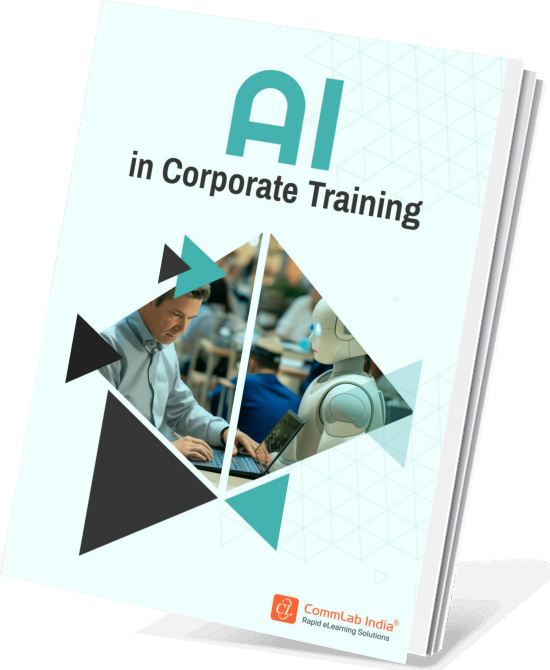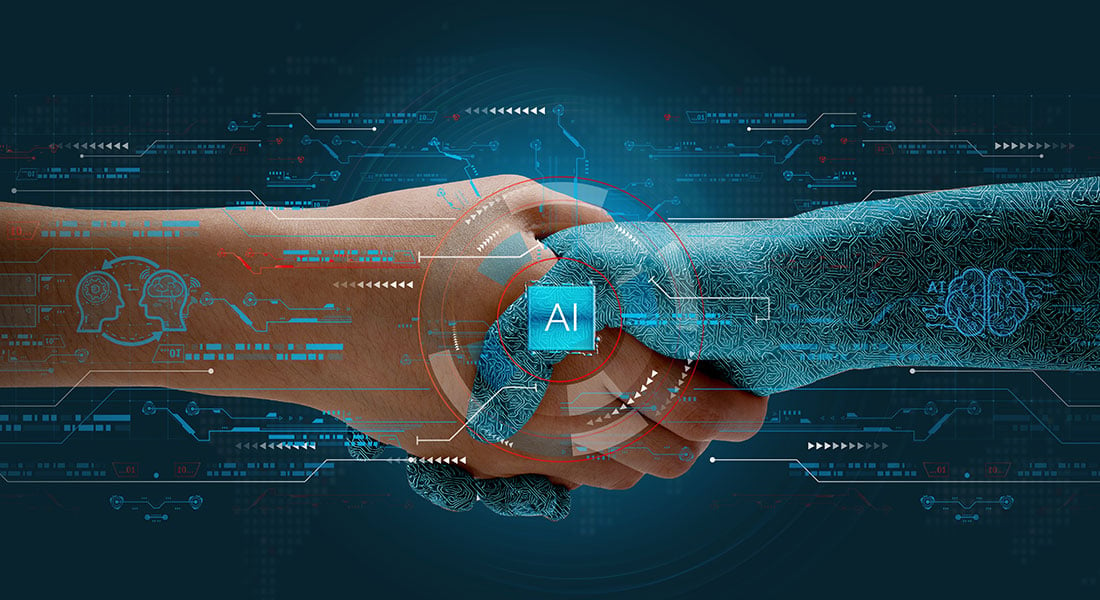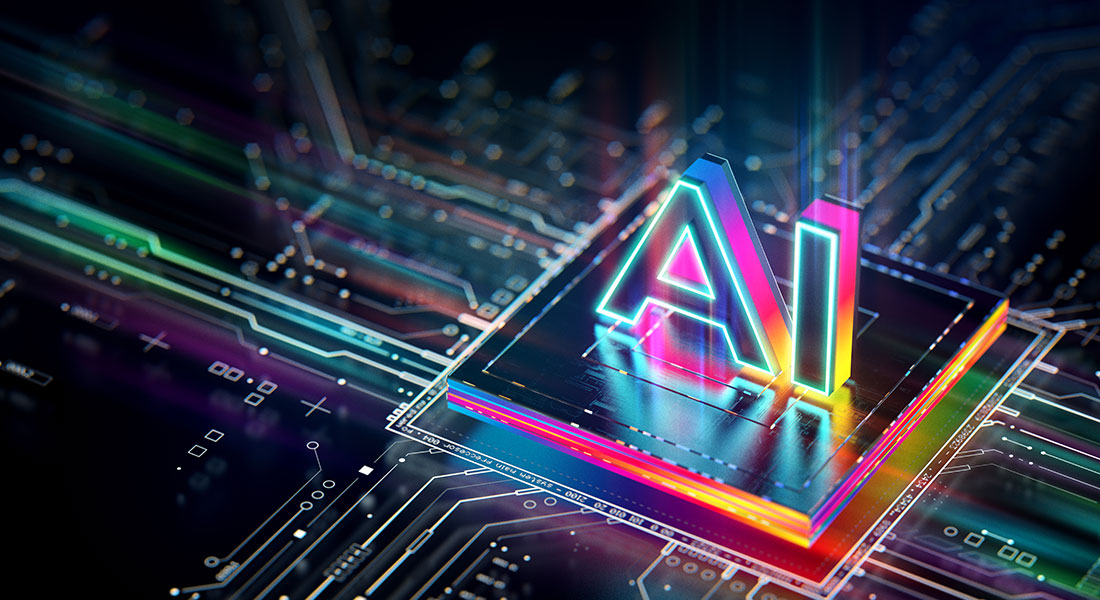Why Should You Explore Generative AI for L&D? [ANSWERED]
![Why Should You Explore Generative AI for L&D? [ANSWERED] Why Should You Explore Generative AI for L&D? [ANSWERED]](https://blog.commlabindia.com/hubfs/blogs/generative-ai-why-l%26d-teams.jpg)
AI is no longer a distant concept. It powers our world, from the mundane to the extraordinary. From the moment you wake up to the time you rest, AI is there – suggesting breakfast, optimizing your commute, and curating entertainment. But its magic extends far beyond personal convenience. As GAI evolves, it's poised to reshape L&D - how we learn and grow, promising a smarter, more personalized training landscape.
→ Download Now: AI in Corporate Training [eBook]
Table of Contents
- What is Generative AI (GAI)?
- What is the Impact of GAI on Workplace?
- Creates Personalized Learning Paths
- Allows Adaptive Learning
- Automates Content Creation
- Replicates Natural Language Interaction
- Assists in Realtime Language Translation
- Fosters a Culture of Continuous Learning
- Curates Content with Updated Repositories
- Provides Learning Analytics and Insights
- Promotes Creative Skill Development
- Supports as Virtual Learning Assistants
What is Generative AI (GAI)?
To put it in simple terms, GAI is a subset of AI. It has emerged as a promising technology capable of generating new content, such as images, texts, music, and more. With its potential to create lifelike and creative outputs, GAI is captivating researchers, businesses, and enthusiasts alike.
Is Generative AI (GAI) the Future of L&D?
GAI is a game-changer for L&D teams. Here’s how:
- Revolutionizes L&D by reshaping the landscape.
- Generates diverse content, including text, images, and music.
- Elevates the quality and effectiveness of training programs.
- Produces lifelike and imaginative content.
- Holds promise for shaping the future of work within L&D.
Let’s delve into the world of GAI and explore its potential to shape the future of work, especially for the L&D fraternity.

GAI is used to generate a response based on the input query. From images to content and even code, GAI options can throwback responses in any format that is posed in the system. To be able to create something at this level with just plain text prompts demonstrates the enormous scale at which technology is advancing.
The most popular GAI tools right now are ChatGPT, Gemini and Copilot. They can analyze and understand natural language inputs and generate human-like responses. These tools use machine learning algorithms to learn from a vast amount of data and can provide customized responses based on the context of the user's query. They has many applications in various industries, including healthcare, finance, and learning and development(L&D).
What is the Impact of GAI on Workplace?
GAI will have a profound impact on workplace learning programs, revolutionizing the way organizations design, deliver, and personalize training experiences for their employees. It has the potential to significantly improve the L&D experience for learners. By leveraging its creative abilities and data generation capabilities, GAI can enhance various aspects of the learning process, making it more engaging, personalized, and effective.
How can these GAI tools be utilized to tackle challenges at the workplace, contribute to performance enhancement, and make a difference worth considering is where L&D professionals are looking for answers.
Here are some ways in which GAI will shape corporate training programs, positively impacting the L&D experience for learners:
Creates Personalized Learning Paths:
GAI can analyze individual learner data, such as their performance, patterns, preferences, and learning styles, to create personalized learning paths for employees. This customization ensures that each employee receives training content and resources tailored to their specific needs, proficiency levels, and skill gaps. This helps in creating effective and engaging learning experiences.
Allows Adaptive Learning:
Generally, AI-powered adaptive learning platforms leverage GAI to continually assess employee progress and dynamically adjust the difficulty and content of training modules. This adaptive learning approach ensures that learners are optimally challenged, enhancing knowledge retention and skill development.
How to utilize Adaptive Learning Paths with AI for Effective Corporate Training? [VIDEO]
Automates Content Creation:
With GAI, content teams, and instructors can augment their efforts in producing training material for corporate learning programs. It can quickly and efficiently make interactive simulations, visualizations, and explanatory graphics, making complex concepts more accessible and engaging. This helps in freeing up L&D teams from manual content creation tasks, allowing them to focus on higher-value activities.

AI in Corporate Training
Partner, Not Replacement
- AI in Corporate Training
- AI Toolkit for Super-charged Learning
- Challenges to Consider with AI Implementation
- And More!
Replicates Natural Language Interaction:
Conversational AI powered by GAI facilitates natural language interactions. It allows learners to ask questions, seek clarifications, and receive instant feedback. This approach creates a more interactive and dynamic learning experience, replicating human-to-human interactions.
Assists in Realtime Language Translation:
Language barriers can hinder learning experiences for learners in diverse regions. GAI-powered translation models can assist in real-time eLearning language translation, making training content accessible to a broader audience. This multilingual support facilitates learning programs, especially in MNCs that have a diverse global workforce, making learning accessible to communities that were previously underserved.
Fosters a Culture of Continuous Learning:
GAI supports continuous learning initiatives by enabling the creation of microlearning modules and bite-sized content accessible on various devices. Employees can access relevant information on the go, fostering a culture of continuous learning and upskilling.

Curates Content with Updated Repositories:
When information or practices changes or if there is an update, GAI can swiftly generate updated training materials, ensuring that learners always have access to the most current knowledge. GAI allows for quick content updates and iterations and assists in curating relevant learning resources from vast repositories of content.
Provides Learning Analytics and Insights:
AI-driven learning analytics provide valuable insights into employee learning behaviors, engagement, and knowledge gaps. These insights enable training managers and L&D teams to make data-driven decisions, improve training strategies, and optimize learning outcomes.
Promotes Creative Skill Development:
GAI can foster creative skill development by generating art, music, and design examples. Learners can explore new artistic expressions and receive instant feedback on their creations. The trainers in turn can use GAI to create innovative and creative assessment methods, moving beyond traditional MCQs to interactive and scenario-based assessments that evaluate deeper understanding and critical thinking.
Supports as Virtual Learning Assistants:
GAI can power virtual learning assistants that guide learners throughout their learning journey. These assistants can provide real-time support to employees, answer questions, offer explanations, and provide personalized recommendations. This enhances the learning experience, making it more interactive and efficient.
To Conclude
In conclusion, GAI is transforming the L&D landscape by enriching content, creating personalized learning pathways, and enhancing learner engagement. As this technology continues to advance, it is likely to play an increasingly vital role in creating a more efficient, inclusive, and enjoyable learning experience for learners of all ages and backgrounds. It will drive a culture of continuous learning, enabling organizations to stay competitive in a rapidly changing business landscape.
Unlocking the power of AI in your training strategy can transform your workforce development. Download our free eBook, "AI in Corporate Training," and discover how it helps personalize learning, streamline content creation, empower eLearning developers, and measure success.
Editor's note: This post was originally published in September 12, 2023 and has been updated for comprehensiveness.




![How does AI Foster Accessibility in Online Training [Infographic]](https://blog.commlabindia.com/hubfs/blogs/online-training-ai-accessibility-info.jpg)
